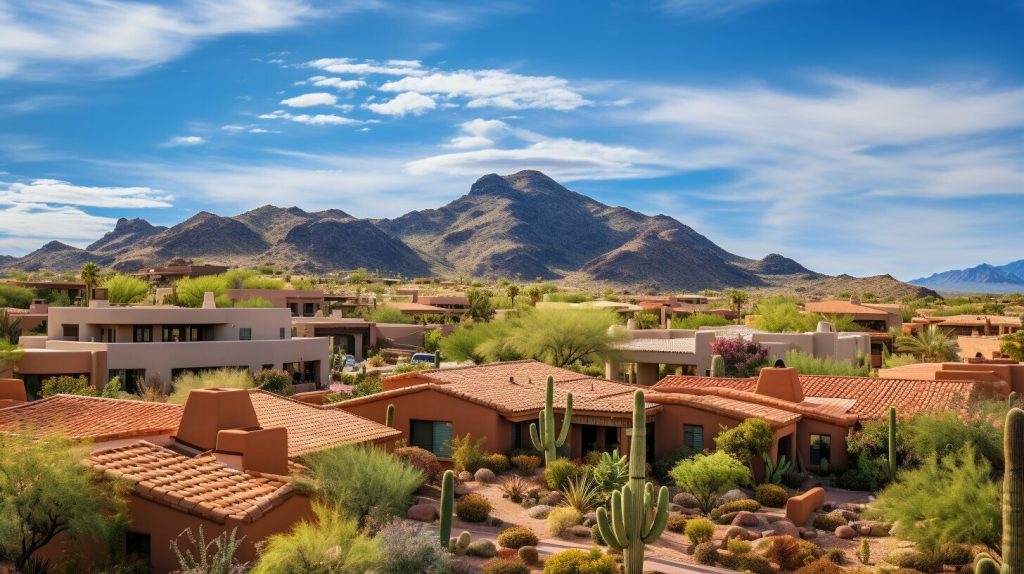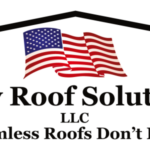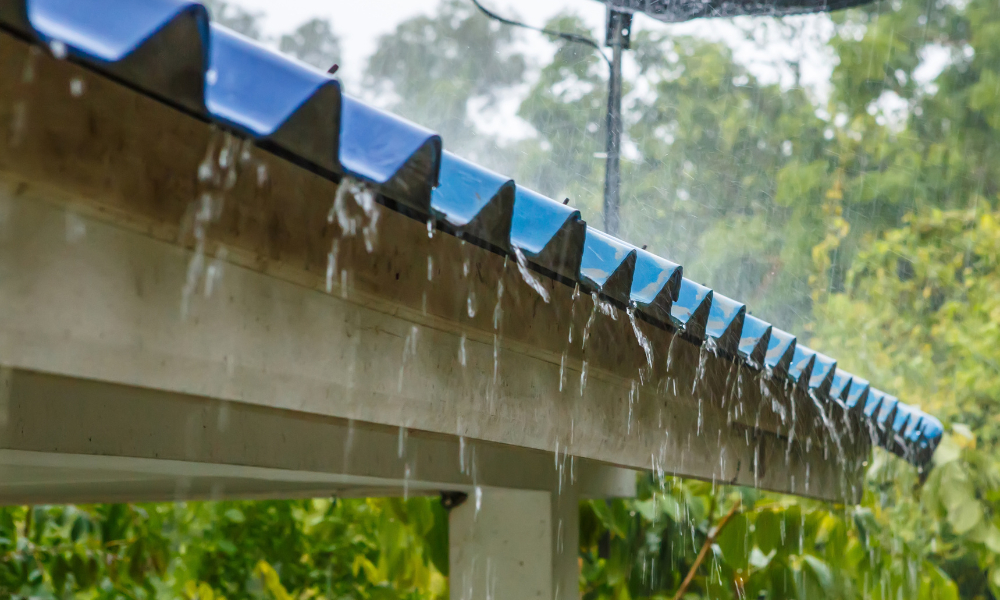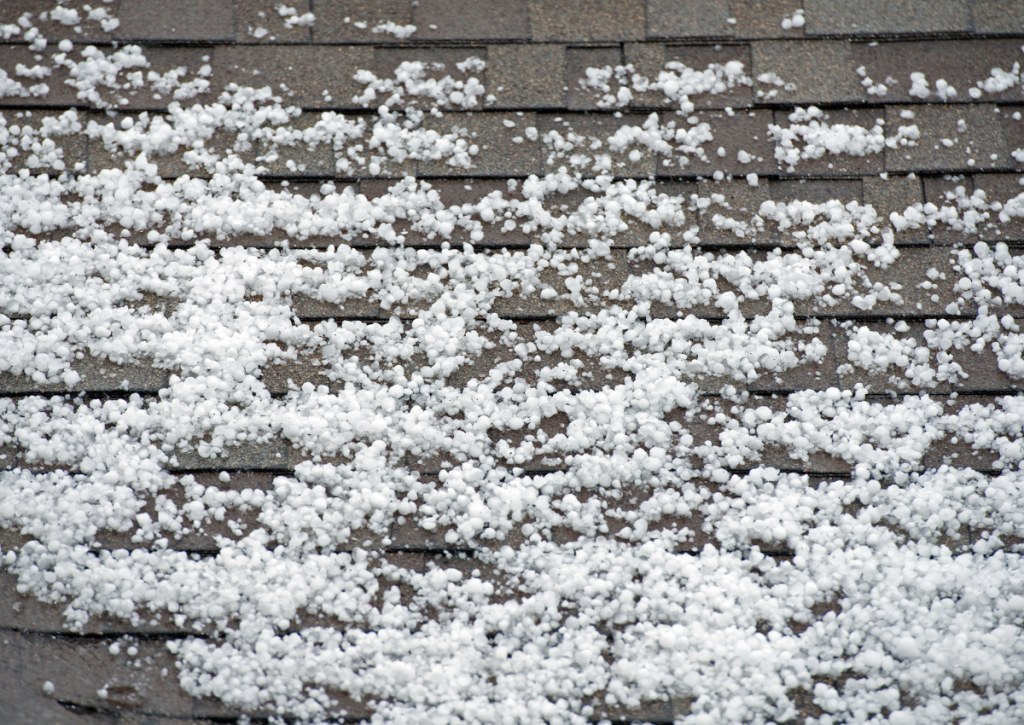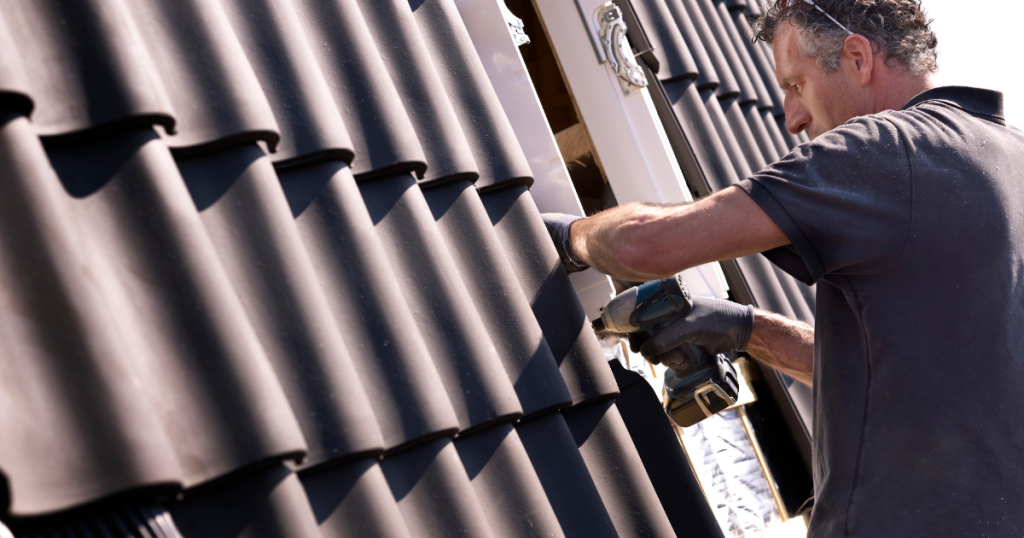We know that choosing the right roof for your building is a significant decision. In Arizona, the choice is even more critical due to the extreme weather conditions the state experiences. That’s why we’ve put together this guide to help you navigate the most common roof types in Arizona.
Key Takeaways:
- Arizona’s climate requires roofs that are durable and cost-efficient.
- Flat roofs are an excellent choice for Arizona’s hot temperatures and minimal rainfall.
- Tile roofs are a classic and timeless option that offers aesthetic appeal and durability.
- Metal roofs have gained popularity due to their modern look and eco-friendly properties.
- Choosing the right roof type for your Arizona building involves considering factors such as budget, climate, aesthetics, and maintenance requirements.
Flat Roofs: Ideal for Arizona’s Climate
When it comes to roofing options in Arizona, flat roofs are a popular choice. And it’s no wonder why – they’re an excellent fit for the climate here. With high temperatures and little rainfall, a flat roof can keep your commercial building cool and dry efficiently and effectively.
One of the primary benefits of a flat roof is its construction. With its simple design, flat roofs are easier to build, making them cost-efficient. Plus, they’re ideal for businesowners who want to use their roof for other purposes, like a garden or patio.
When it comes to materials, flat roofs can be constructed using a variety of options, including built-up roofs, modified bitumen, and single-ply roofing materials. Each of these options offers advantages for the Arizona climate, from heat resistance to durability.
While flat roofs have plenty of benefits, they do require maintenance to keep them in top shape. Regular inspections and repairs are necessary to avoid leaks, which can be a common issue with flat roofs. It’s vital to hire an experienced contractor to maintain your flat roof properly.
Overall, flat roofs are an excellent option for businessowners in Arizona, offering cost-efficiency, durability, and functionality. Whether you’re building a new property or replacing your existing roof, a flat roof is worth considering.
Tile Roofs: A Classic and Timeless Option
When it comes to roofing options in Arizona, tile roofs are a classic and timeless choice that have been popular for years. Not only do they offer aesthetic appeal, but they are also known for their durability and longevity.
There are two types of tile roofs commonly used in Arizona: clay tiles and concrete tiles. Clay tiles are known for their natural earthy colors and traditional look, while concrete tiles offer more variety in color and style. Both options are durable and can withstand Arizona’s hot and dry climate.
One of the benefits of tile roofs is their longevity. With proper installation and maintenance, a tile roof can last up to 50 years or more. Additionally, they are energy efficient, helping to keep your property cool during hot summers in Arizona.
Tile roofs offer a wide range of opportunities for customization to suit any businessowner’s preferences. Whether you want a classic and traditional look, or a more modern and unique design, tile roofs can meet your needs.
However, it is important to note that tile roofs can be more expensive than other roofing options, and their weight can require additional support in the structure of the property. Additionally, maintenance and repairs can be more difficult due to the fragility of the tiles.
Conclusion
In conclusion, tile roofs are a classic and timeless option for businessowners in Arizona. Their durability, energy efficiency, and customization options make them a popular choice. However, it is important to consider the higher cost and maintenance requirements when choosing a tile roof for your property.
Metal Roofs: A Modern and Sustainable Solution
When it comes to selecting a roofing option for your Arizona commercial building, metal roofs may not immediately come to mind, but they are increasingly gaining popularity due to their modern and sustainable properties.
Metal roofs are an eco-friendly choice, as they are made from recyclable materials and can be recycled at the end of their lifespan. In addition, metal roofs are energy-efficient, reflecting sunlight and keeping your building cool during hot Arizona summers.
There are various metal roofing materials available, including aluminum and steel, which are both durable and long-lasting. Unlike other roofing options, metal roofs can last up to 50 years or more with proper maintenance.
Installation of metal roofs requires specialized expertise, as it involves the use of specific tools and techniques. However, once installed, metal roofs require minimal maintenance and are resistant to fire, wind, and hail damage, making them a cost-effective option in the long run.
While metal roofs offer many benefits, there are a few potential drawbacks to consider. For example, if not properly insulated, metal roofs can be noisy during heavy rain or hailstorms. Additionally, depending on the specific type of metal roof you choose, the upfront cost may be higher than other roofing options.
Overall, metal roofs offer a sleek, modern look for your Arizona building while providing sustainability and durability.
Conclusion: Choosing the Right Roof Type for Your Arizona Commercial Property
Congratulations on making it this far! We hope you have found our exploration of the most common roof types in Arizona helpful. Now, let’s discuss how to choose the right roof type for your Arizona building.
The first consideration is your budget. Some roof types, such as metal roofs, may cost more upfront but can save you money in the long run due to their energy efficiency and longevity. Other roof types, such as flat roofs, may have lower initial costs but higher maintenance requirements.
Next, consider the climate. Arizona’s hot temperatures and minimal rainfall make flat roofs an ideal choice, while tile roofs offer excellent durability in extreme weather conditions. Metal roofs are also becoming increasingly popular due to their eco-friendly properties.
Another important factor is the aesthetics of your roof. Tile roofs offer a classic and timeless look, while metal roofs have a modern and sleek appearance. Flat roofs can also be customized to fit your desired aesthetic.
Lastly, consider the maintenance requirements of each roof type. Some, like flat roofs, require more maintenance and attention, while others, like metal roofs, have lower maintenance requirements.
In conclusion, there are several factors to consider when choosing the right roof type for your Arizona establishment. By taking into account your budget, climate, aesthetics, and maintenance requirements, you can make an informed decision that will provide you with a durable and cost-effective roof for years to come.
FAQ
What are the most common roof types in Arizona?
The most common roof types in Arizona include flat roofs, tile roofs, and metal roofs.
Why are flat roofs ideal for Arizona’s climate?
Flat roofs are ideal for Arizona’s climate because they are suitable for hot temperatures and minimal rainfall.
What are the benefits of flat roofs?
Flat roofs offer cost-efficiency, easy installation of solar panels, and additional outdoor living space.
How are flat roofs constructed?
Flat roofs are constructed with multiple layers, including insulation, membrane, and a protective coating.
What materials are commonly used for flat roofs in Arizona?
The most common materials used for flat roofs in Arizona are modified bitumen and single-ply membranes.
What are the maintenance requirements for flat roofs?
Flat roofs require regular inspections, cleaning of debris, and resealing of seams and penetrations.
Are there any potential drawbacks to flat roofs?
Flat roofs may be prone to ponding water, require frequent maintenance, and have a limited lifespan compared to other roof types.
Why are tile roofs a classic and timeless option?
Tile roofs are considered classic and timeless due to their aesthetic appeal and long-lasting durability.
What types of tile roofs are available for Arizona commercial establishments?
Arizona building owners can choose from clay and concrete tiles for their roofs.
What are the benefits of tile roofs?
Tile roofs offer excellent insulation, longevity, and resistance to fire, insects, and rot.
What style options are available for tile roofs?
Tile roofs come in various styles, including Spanish, Mediterranean, and contemporary designs.
What maintenance considerations should building owners be aware of with tile roofs?
Tile roofs require periodic inspections, cleaning of debris, and replacement of broken or damaged tiles.
Are there any potential drawbacks to tile roofs?
Tile roofs can be heavy, require professional installation, and may be more expensive compared to other roof types.
Why are metal roofs a modern and sustainable solution for Arizona commercial establishments?
Metal roofs are modern and sustainable due to their energy efficiency, recyclability, and longevity.
What are the benefits of metal roofs?
Metal roofs offer excellent durability, resistance to fire and pests, and the ability to reflect sunlight, reducing cooling costs.
What types of metal roofing materials are commonly used in Arizona?
Aluminum and steel are the most commonly used metal roofing materials in Arizona.
Are metal roofs suitable for the Arizona climate?
Yes, metal roofs are suitable for the Arizona climate, as they can withstand extreme temperatures and protect against UV radiation.
What are the maintenance requirements for metal roofs?
Metal roofs require minimal maintenance, including periodic inspections and cleaning of debris.
Are there any potential drawbacks to metal roofs?
Metal roofs can be noisy during rainstorms and may require additional insulation to prevent heat transfer.
How can I choose the right roof type for my Arizona building?
Consider factors such as budget, climate, aesthetics, and maintenance requirements when choosing the right roof type for your Arizona property. It is also advisable to consult with roofing professionals for expert advice.

